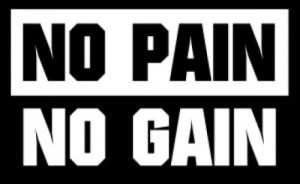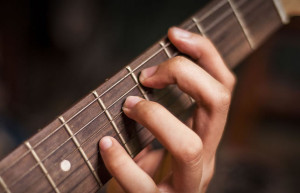No pain no gain? Idiots only!
No pain no gain? Idiots only! Unfortunately, you hear it every now and then on the news … Young footballer suffers cardiac arrest on the pitch. And then everyone starts shouting like a herd of unhinged crazy buffalo : “Mandatory regular medical check-up for sports people, now!”. They’re right, but hey, apparently no one crows about musicians? And now we professional musicians are also top athletes! ! Not convinced? Read on! Playing music at a professional level is comparable to top sport.

We all say no pain no gain with a laugh, but pain is a signal from your body to tell you that you are going beyond human limits and should stop exercising, otherwise you will damage your body in the short and longer term. When you get pain and your body says “stop”… stop ! Bite your teeth and still practice? How idiotic can you be? Your choice, but you may be out of business for months afterwards by overloading your body. So say “enough for today”, or, “I don’t play music and guitar today”.

Something I missed very much in hindsight, and I don’t think that has changed yet, is mandatory medical supervision of music students. Here at the Belgian music school, there was not even a word about health and the load on the body in a musician, as if this were all taboo. At Musicians Institute Hollywood in Los Angeles, a lot of attention was paid to this. You can say or think what you want about the Americans, but I have experienced that they are 50 years ahead of us in many areas!
OK admittedly, or some areas are 100 years behind. At that music school, it was absolutely not taboo when a music teacher struggled with his health, so that the musicians in the making could also see the negative sides of playing music. For example, one of my guitar teachers Ken Steiger was even “out” for 6 months because of tingling and reduced sensation in his left hand. A real nightmare for a metal shredder! Result : surgery on pinched spinal nerves … and 6 months out! At Musicians Institute there was also teaching about which instrument gives which load to the body, and we also received specific exercises and two clear messages : 1. pain is not normal, stop playing and consult a specialist in case of recurring pain, 2. one hour of guitar practice = 50 minutes of playing + 10 minutes of doing physiostic exercises.

